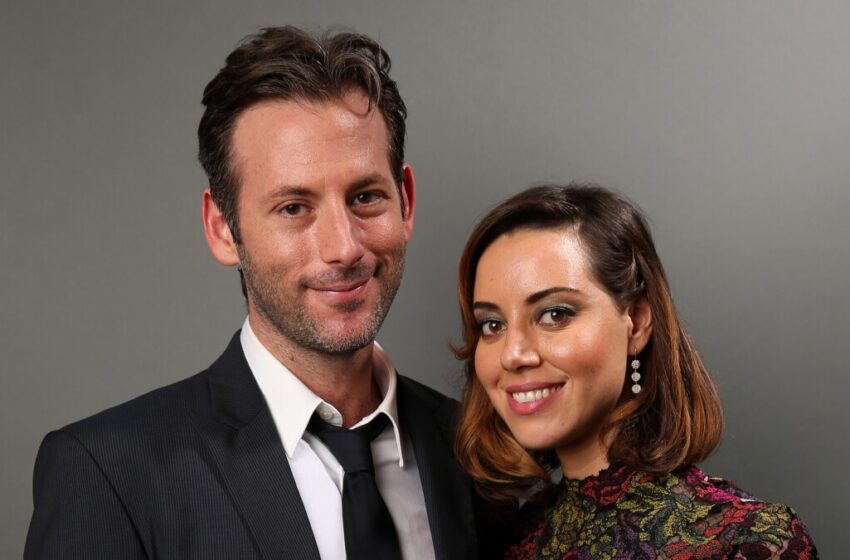What does Aubrey Plaza’s grief reveal about Jeff Baena’s death?

Aubrey Plaza and her husband, Jeff Baena. Credit: Mark Davis / Getty Images for Sundance NEXT
When Aubrey Plaza spoke on August 19, 2025, during Amy Poehler’s Good Hang podcast, her words broke a silence she had kept for months. In measured tones, she described grief as a “daily struggle,” weaving in a metaphor from the film The Gorge. For the first time since January, Plaza’s reflections opened a window into how she has navigated the loss of Jeff Baena—her husband, frequent collaborator, and a distinctive voice in American independent cinema.
Baena, the director and screenwriter behind films like Life After Beth, Joshy, The Little Hours, and Spin Me Round, died by suicide on January 3, 2025, in Los Angeles. He was 47. The Los Angeles County Medical Examiner confirmed the cause and manner of death, and his family released a statement through Plaza requesting privacy as they mourned. Yet from the very first headlines, the balance between reporting fact and exploiting grief became an uneasy dance.
A Career of Quiet Originality
Before his death, Baena had built a reputation for blending sharp wit with darkly comedic storytelling. His works, often marked by a willingness to subvert genres, attracted collaborators like Alison Brie, the Duplass Brothers, and Plaza herself, who starred in Life After Beth and The Little Hours. He was a filmmaker who thrived in the indie circuit, carving out a space for eccentric narratives and collaborative creativity.
Yet in the weeks following his passing, coverage of Baena often centered more on his relationship with Plaza than on his work. Married in 2021 after a decade together, the pair were an emblem of creative partnership. In September 2024, reports emerged that they had quietly separated, a fact that tabloids would later seize upon to frame Baena’s death and Plaza’s silence in ways that blurred empathy with speculation.
READ ALSO
Aubrey Plaza opens up about husband Jeff Baena’s death
January’s Coverage: Privacy Meets Public Curiosity
When Baena’s death was confirmed in early January, media outlets faced the familiar but fraught task of reporting on suicide. Responsible outlets cited official records and respected the family’s request for privacy, but social media told another story. Rumors swirled about the circumstances, fueled by the couple’s separation and Plaza’s public absence in the weeks that followed. This cycle of speculation underscored a recurring ethical challenge: how to acknowledge the death of a public figure without sensationalizing it.
Plaza’s initial response—a family statement asking for time and privacy—was an effort to close the door on further conjecture. But in the culture of celebrity grief, silence often becomes its own headline.
The August Reignition
That silence ended on August 19, when Plaza spoke candidly for the first time. Her description of grief as “a daily struggle” resonated widely, sparking new headlines and reigniting public attention. Some framed her remarks as a dignified moment of vulnerability, while others drew them into clickbait narratives that once again centered the couple’s separation rather than Baena’s life or work.
In one sense, Plaza’s words offered the closure fans and industry colleagues had been searching for. But they also illustrated how celebrity mourning can become commodified—how every metaphor, every comment, risks being reshaped into a public spectacle.
The Controversies Around His Death
Baena’s passing sits at the intersection of multiple debates:
-
Privacy vs. Public Interest: How much detail should the media disclose about suicide, especially when method and speculation can cause harm?
-
Narrative Control: Was coverage of Baena’s death and Plaza’s grief more interested in their marriage than in his contributions as a filmmaker?
-
Rumor Culture: Social media’s rush to fill in gaps created confusion, often corrected only later by verified reporting.
-
Industry Wellness: Beyond the personal tragedy, Baena’s death raises questions about mental health pressures in the independent film world—though it is important not to draw unsupported links or causation.
Centering the Work, Not the Loss
As the dust of coverage settles, what risks being lost is Baena’s creative vision. His films, strange and slyly funny, remain testaments to his storytelling style and collaborative spirit. They reveal a filmmaker who relished subversion, who gave his actors freedom to stretch, and who left behind a body of work that continues to resonate.
Plaza’s words remind us that grief is not easily packaged for public consumption. They also serve as an invitation to remember Baena not just through the circumstances of his death, but through the art he created and the lives he touched.

